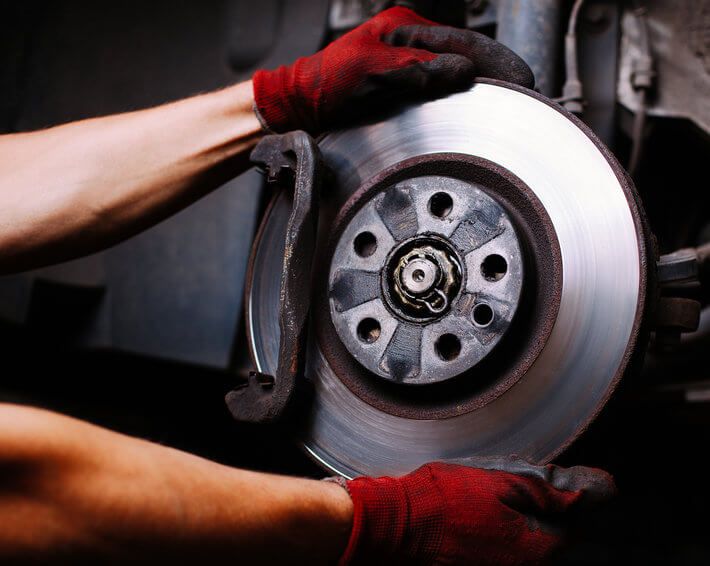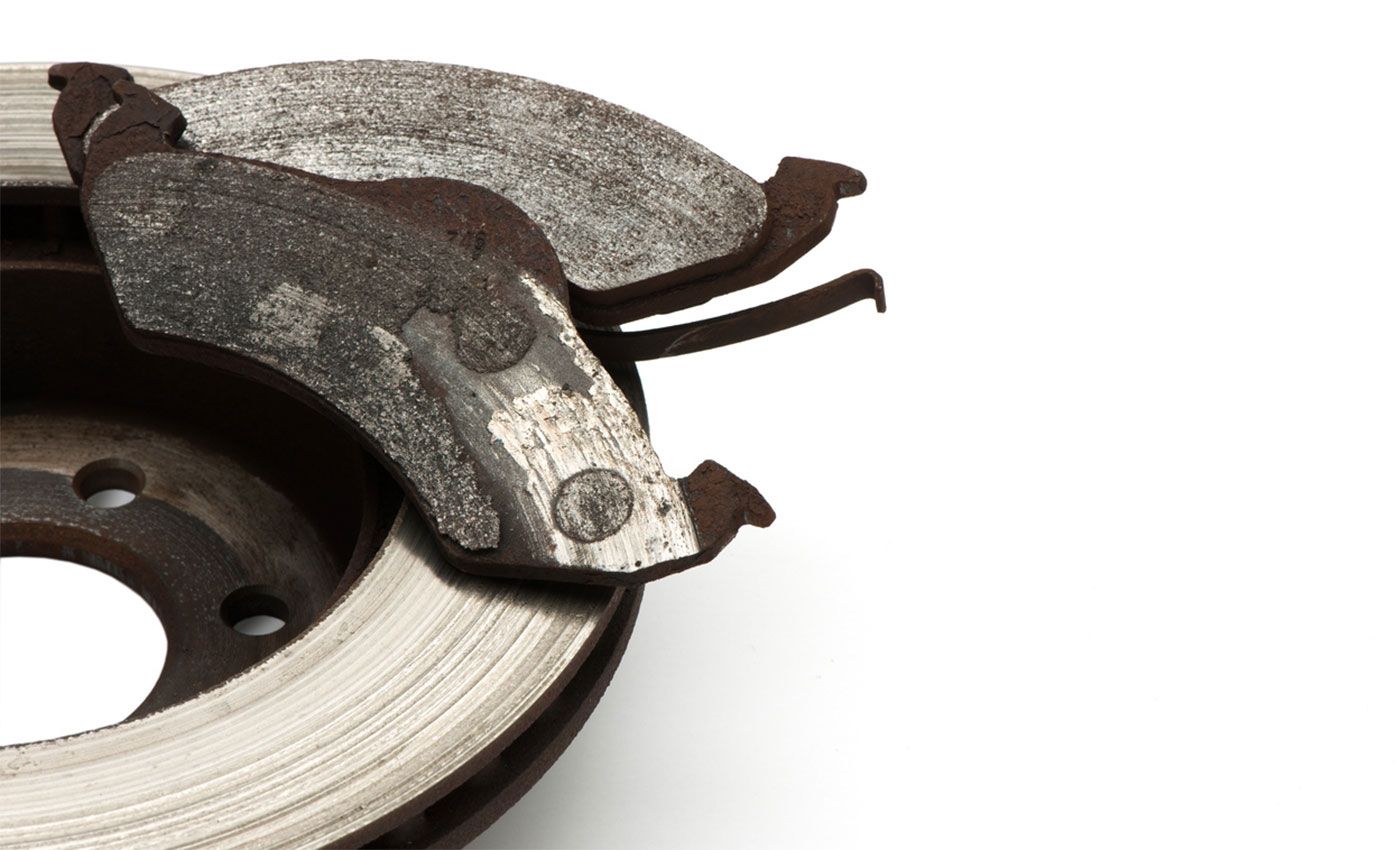Many drivers think that brake pads need to warm up, that there are soft and hard brake pads, and that when you hear squeaks and squawks coming from the brake area, the pads are the sole source of the noise. As it turns out, these are all common misconceptions. Join us as we debunk these brake myths and more!
Myth #1: Brake pads need to warm up to work effectively.
Not true, unless you're an IndyCar driver. The brakes on your average street vehicle produce enough friction to stop your car even at cold temperatures. It doesn’t matter if they are cold or hot; your brakes will bring your car to a halt either way. However, the performance brakes in sports cars and race cars were built for high speed and high temperatures, and these brakes actually require a good degree of heat in order to perform at their best, say the folks at Tire Review.
Myth #2: Soft pads and hard pads. One must be better than the other!
Brake pads aren’t classified in terms of “hard” and “soft.” The closest thing to soft and hard would be the compressibility of the pad. A pad's compressibility is tested at the factory when it's manufactured and is considered a quality control measurement. Compressibility can impact the feel of your brakes, but it’s not used as a measure of braking ability. What you may mean by “soft” and “hard” relates to the type of friction a brake pad creates when it comes in contact with the rotor.
What's a rotor? There's a rotor directly connected to each tire. The rotor must stop spinning in order for your car to stop. Friction created by the brake pad causes the rotor to stop.
“Hard-feeling” pads are rough and grind against the rotor. They have very stable braking ability across wide temperature ranges. “Soft-feeling” pads use adhesion to create friction, meaning that they “stick” to the rotor rather than grind against it. These pads are kinder to your rotor and may help extend its life. While there aren't necessarily such things as "hard" and "soft" brake pads, pads do vary in the type of friction they apply. The difference in friction can make it seem like some pads are "harder" than others.
If you feel like your brakes are "soft" or "spongy" in the oh-my-goodness-I'm-not-stopping kind of way, visit your local Firestone Complete Auto Care ASAP. There could be a larger issue going on within your vehicle's brake system. "Spongy" brakes could be a sign of a defective master cylinder, a twisted hard line, rear calipers that haven't been properly adjusted, or leaking brake fluid.
Myth #3: Braking noise is always caused by the pads.
Some braking noise could be caused by the pads, but they aren't the only potential source. Your brake pads are built with indicators that will rub against the rotor when they've been worn down to the point of replacement. When the indicator rubs the rotor, it produces a high-pitched squealing noise that sounds like it's coming from around your tires.
The brake pad and indicator aren't always the source of brake noise though. When you put your foot on the brake, the brake pads create friction and vibrations. These vibrations can cause noise when they spread to other parts of the brake system or the car. High frequency noises are often caused by thinner parts of the brake system, such as the rotor or the caliper. Low frequency noises come from vibrations in thicker parts, such as the struts or the body of the car itself. Before your squeaks turn into screams, bring your car to a local Firestone Complete Auto Care. Our knowledgeable technicians can help identify and reduce excess brake noise with a brake inspection and repair service.
Myth #4: Wet rotors increase braking time.
It takes about three times longer to break on wet roads than on dry roads, but not because any part of your brake system is damp. Any water on your rotor is going to get thrown off by the intense centrifugal force of the spinning wheels. As rain falls and mixes with oil, grime, and water, the roads become slicker, and you lose traction. Wet tires and roads cause increased braking time, not wet brakes. On wet or slippery roads, reduce your speed. Lower speeds will help you gain more traction as more of your tires' tread will make contact with the road, notes Pennsylvania's Teen Driver Education Program.
Myth #5: Drilled or slotted rotors improve braking performance.
Want to gain a real boost in braking performance? If you're looking at drilled or slotted rotors, don’t—unless you're an IndyCar driver. Drilled or slotted rotors will not improve braking performance on street vehicles, even if they do look really cool. Performance racecars sometimes use slotted rotors to help evenly distribute heat, but this technique decreases the life of the average rotor. Any slight performance boost you get from slotted rotors probably won’t outweigh the cost of replacing them more frequently.
When it comes to brake repair, we don't take breaks.
Curious about your brakes? Visit the brake experts at your local Firestone Complete Auto Care today! Your car may not have an expiration date, but your brakes and brake pads certainly do. Our technicians perform nearly one million brake repairs every year, which means we've pretty much seen and heard it all. Trust us with your brake care!



